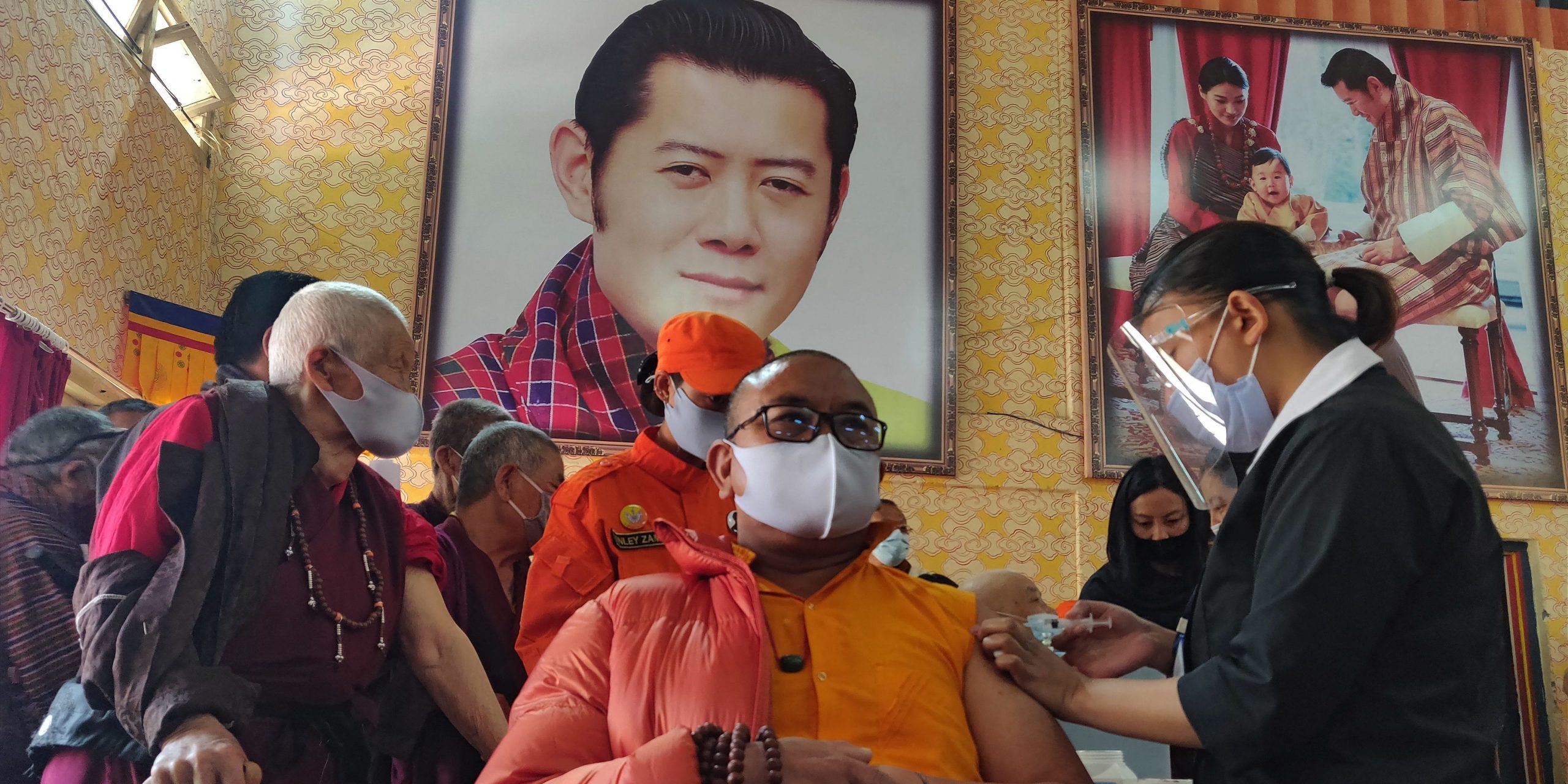
Photo by UPASANA DAHAL/AFP via Getty Images
- The small Himalayan nation of Bhutan has vaccinated almost its entire adult population in just 16 days.
- The country began vaccinating people on March 27, after receiving 150,000 doses from India in January.
- The government conferred with Buddhist monks who advised officials to wait for more favorable conditions.
- Visit Insider's homepage for more stories.
One country's vaccination drive is nearing its completion just days after it began.
The small Himalayan kingdom of Bhutan, got an intentionally late start on its inoculation efforts, according to the Associated Press, but the country's auspicious delay hasn't hampered its vaccination success.
The tiny country nestled between India and China received 150,000 doses of the AstraZeneca vaccine from India in January, but only began distributing the shots in late March, in order to coincide with favorable Buddhist dates, The Economist reported.
The country has vaccinated nearly 93% of its adult population since March 27 – in just 16 days. Overall, Bhutan has inoculated 62% of its total 800,000 people, according to the AP.
The country's hasty rollout bumps the small nation into second place globally, behind only the even tinier Seychelles, which has vaccinated 66% of its nearly 100,000 people, the AP reported.
While its small population certainly helped Bhutan speed through vaccinations, the country's success has also been attributed to "desuups," a group of dedicated citizen volunteers, as well as established cold chain storage according to the AP.
Dr. Pandup Tshering, secretary to the Ministry of Health told the outlet that shots were still being given to those who were unable to secure a dose during the initial drive and said the country has enough vaccines to inoculate the entire population.
Bhutan has enforced a mandatory 21-day quarantine for any person entering the country during the pandemic and has recorded 910 COVID-19 infections and just one death since the pandemic began, according to the AP.
After Bhutan received the donated shots in January, the government reportedly consulted with a body of Buddhist Monks who said the campaign should be postponed two months and that the first jab should be both administered and received by women born in the Year of the Monkey, according to The Economist.
"Let my action here today bring peace to all sentient beings," the first recipient, 30-year-old Ninda Dema told the country's Kuensel newspaper. "And let this small step of mine today help us all prevail through this illness."